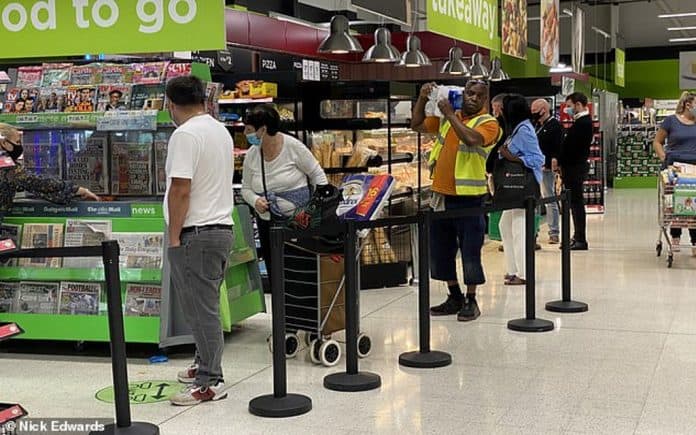Nestlé, the world’s largest food company, said it expects the prices of basic foodstuffs to continue to rise this year, according to what was reported by the American Axios website , Sunday, February 19, 2023.
Major consumer food companies continue to warn of further hikes to come, after more than a year of price increases, as families struggle to buy groceries.
In a statement, Nestlé’s CEO Mark Schneider remarked: “Over the last 12 months, families, communities and businesses have been met with extreme obstacles and difficult decisions. Inflation has skyrocketed to its highest rate ever while cost of living is putting even more strain on individuals; in addition geopolitical unrest can be felt globally.”
Schneider said in a phone call with reporters, Thursday, February 16, that the price increases, which will vary by market and category, will be “very targeted” and will only be implemented when “input cost inflation justifies it.”
He also added, “We are still in a position where we are repairing our gross profit margin and, like all consumers around the world, we have been hit by inflation, and we are now trying to repair the damage that has been done.”
Schneider said Nestlé itself raised prices by 8.2% in 2022, but that was not enough to offset the costs.
Faced with rising commodity costs and wages, firms walk a tightrope with pricing strategies; Trying to maximize profits without turning away customers.
The crisis of the war on Ukraine
Despite the rise in the cost of eggs over the past few months, US consumers got a respite from rising costs in December, when the index fell month over month, the first decline since last summer.
Weekly egg prices fell by more than 40% early this month from their December 2022 peak of $5.30.
Shortly after the Russia’s aggression against Ukraine, global food commodity prices skyrocketed to their peak as indicated by the FAO Food Price Index. The UK saw a dramatic spike in bread and egg costs; 18% up from December last year while milk rose 30%. It was clear proof that this international conflict impacted people everywhere through skyrocketing food prices.
The increase in food prices threatens the world’s food security capabilities, especially in low- and middle-income countries that depend heavily on Ukraine and Russia for supplies of grains and vegetable oils. This includes many countries in Africa and Asia, which accounted for 95% of Ukraine’s wheat exports in 2021 (nearly a tenth of the global wheat supply).
This shortage led to widespread talk in the media about the possibility of famines in different regions of the world, but food prices declined during the past period, and the data contained in the “Food and Agriculture Organization Food Price Index” indicate that prices returned to pre-invasion levels after A year of the Russian war on Ukraine.



